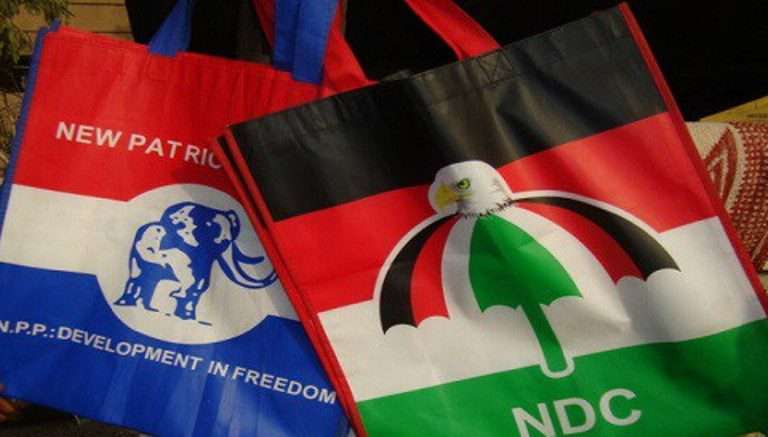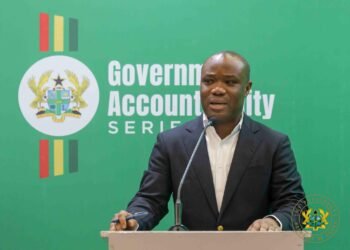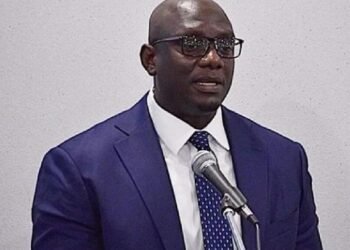The Executive Director of the Center for Democratic Development (CDD-Ghana), Professor Henry Kwasi Prempeh, has criticized the Electoral Commission’s (EC) approval of 13 candidates for the upcoming 2024 presidential election.
He raised concerns about the integrity of the electoral process, suggesting that some candidates may not be legitimate contenders but rather proxies for the New Patriotic Party (NPP) and the National Democratic Congress (NDC).
“We operate a duopolistic political system in a highly polarised winner-takes-all political culture and so how does exit look like in that kind of context? Exit occurs in a variety of ways. Dissatisfied voters can switch between parties but ours being duopolistic, it means that the choice is [limited].
“…practically speaking, there are 13 or so people on the ballot and I think if the Electoral Commission was more diligent and scrupulous, there would be fewer and one will wonder why we keep having the numbers that we have on the ballot every election year when most of these political parties do not meet the requirements. But there is folklore about why it is that way”.
Professor Henry Kwasi Prempeh
Prof. Prempeh further criticized the Electoral Commission’s role, asserting that if the EC were more diligent and thorough in its vetting process, the number of candidates on the ballot would likely be significantly reduced.
He emphasized that a rigorous evaluation of candidates is essential to ensure the integrity of the electoral process and to prevent the dilution of genuine political competition.
Prempeh asserted that by applying stricter standards, the EC could foster a more credible electoral landscape, ultimately benefiting the democratic process in the country.
He reiterated that these candidates essentially serve as proxies for one of the two major political parties, with the intention of influencing decision-making within the Inter-Party Advisory Committee (IPAC).
Accordingly, the CDD Boss stated that by aligning themselves with either the NPP or the NDC, these candidates compromise the integrity of political competition and undermine the diversity of voices in the electoral process.
Prempeh Critiques NPP and NDC as Self-Centered
Furthermore, Professor Henry K. Prempeh criticized both the NPP and the NDC as “self-centered groups” that prioritize their loyal voter bases over the broader interests of the nation.
He highlighted the egocentric nature of Ghana’s democracy, noting that the two dominant political forces appear more focused on maintaining their influence in specific regions than on fostering genuine democratic governance.

Professor Prempeh also referenced a significant instance in 2019 when both parties, fearing a loss of political control in local elections, withdrew their support for a crucial constitutional referendum.
“The Constitutional referendum that was scheduled for late 2019 was called off at the last minute by a presidential fiat because the true parliamentary parties – the sole gatekeepers of Ghana’s elite constitution – could not reconcile their rival partisan preferences in the interest of the collective good”.
Professor Henry Kwasi Prempeh
According to him, this decision not only undermined essential democratic processes but also illustrated their reluctance to prioritize national interests over party loyalty.
Prof. Prempeh indicated that it further complicates the challenges facing Ghana’s democratic landscape and limits the potential for meaningful political reform.
According to him, this move underscores how both parties prioritize their political stakes over meaningful democratic reforms.
He argued that the political landscape is increasingly driven by narrow partisan interests, ultimately undermining broader national development and effective local governance.
Prof. Prempeh’s remarks emphasized the urgent need for a reevaluation of the country’s democratic processes.
He urged both political parties to focus on the long-term interests of the Ghanaian people rather than solely seeking to protect their own political gains.
According to Prof. Prempeh, by fostering a more inclusive approach that considers diverse perspectives, the parties can contribute to a healthier democratic environment that benefits all citizens and enhances the nation’s governance.
READ ALSO: Stonebwoy Set To Release ‘Memories’ Visual With Ir Sais























